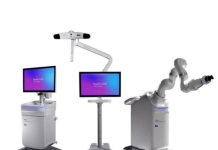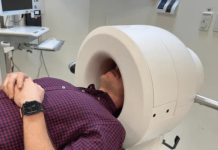Biosensor company Zedzen has partnered with the Imperial College Healthcare NHS Trust to conduct a clinical study investigating its non-invasive sensing device.
The DiCET clinical research study will enrol 90 participants at London’s Charing Cross Hospital, commencing in January and running until December 2024, according to a 9 January press release.
Zedzen says there is evidence that malignant tissue exhibits different electrical properties compared to healthy tissue. Termed electrical capacitance tomography (ECT), the technology could become a new method of cancer detection.
Zedsen seeks to validate these claims using the non-invasive Z-Scanner device which measures electrical properties of objects in the vicinity of its electric field.
RELATED: Cardionomic completes enrolment for cardiac neurostimulation device trials
The company says that conventional ECT would require electrodes placed on either side of the object. Zedsen has designed a flat sensor made up of an array of fifteen parallel electrodes, eliminating the need for compression. Algorithms then process the data.
The trial will recruit 20 participants in the first stage assessing the repeatability and reproduction of Z-Scanner results. A second part, constituting the remaining participants, will assess whether the device can differentiate between a benign and cancerous lesion.
Consultant Radiologist Professor Adrian Lim stated in the press release: “I am very excited about the prospect of this technology. Should it perform as well as we hope it will, it could be a game-changer in oncological diagnostics.”
Zedsen raised $12m (£8.6m) in Series B financing in April 2021. At that time, the company was valued at $110m.
In July 2023, the startup added startup expertise to its operations. Michael Lynch and Martin Harriman joined the team as CEO and chairman respectively, both of whom helped grow WaveOptics from a seed stage company to a $600m company when it was acquired by Snap, one of the largest UK hardware technology exits.




